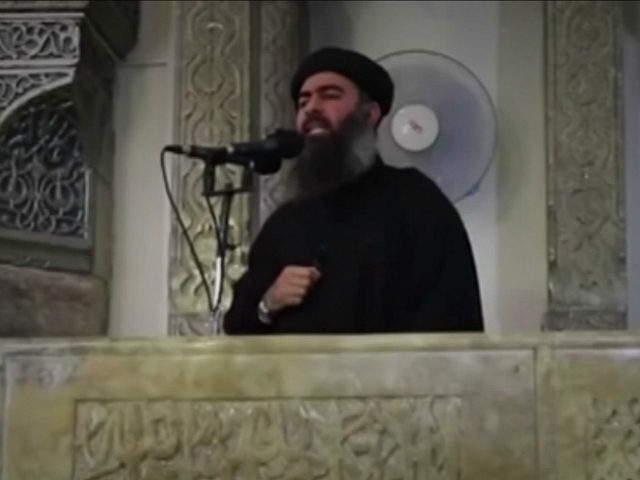The hunt for evidence that Islamic State leader Abu Bakr al-Baghdadi is dead continued on Wednesday, while Iraqi forces battled ISIS holdouts in the officially liberated city of Mosul.
In a curious statement on Tuesday, top theater commander Lt. General Stephen Townsend told a Pentagon press briefing that he does not see any evidence that Baghdadi is alive.
“I really don’t know,” Townsend said in response to a question about the disposition of the ISIS leader. “I don’t have reason to believe that he’s alive. I don’t have proof of life.”
Politico judged that this is the closest an American official has come to saying that Baghdadi is dead, surpassing the U.S. Central Command’s comment that “we cannot confirm this report, but hope it is true.”
While efforts to confirm Baghdadi’s death continue, ISIS militants in Mosul clashed with Iraqi troops on Wednesday, highlighting the difficulty of securing the entire city less than two days after Iraqi Prime Minister Haider al-Abadi declared victory over the terror state.
According to Reuters, gunfire was exchanged with ISIS fighters beginning just before midnight on Wednesday. Helicopter gunships were later called in to strafe the Old City, where several hundred militants are said to be holed up. Local residents said explosions from the battle shook the ground half a kilometer away.
The Islamic State’s media arm, the Amaq News Agency, sought to commemorate the dead-enders with a video titled “Fighting Till the Last Gasp.” Judging by Reuters’ description, the imagery is as uninspiring as the title, making it a far cry from the Islamic State’s triumphant recruiting tapes and execution videos in years past.
ISIS media is doing what it can to counter “persistent narratives of its gradual defeat by characterizing its current situation as a heroic, action movie-esque last stand,” as SITE Intelligence Group analyst Rita Katz told the Washington Post on Wednesday. The terror state is dealing with its battlefield defeats by emphasizing the willingness of its fighters to embrace martyrdom and portray the victors in Mosul as a coalition of “Crusaders” and murderous Shiites.
Strange as it may seem, analysts who spoke to the Post said ISIS might be able to spin some recruiting gold from the straw of its Mosul defeat by rhapsodizing the jihadi paradise lost and encouraging followers to avenge its destruction.
The Chicago Tribune adds concerns that ISIS could capitalize on the continuing fear and resentment of marginalized Sunni citizens to make a comeback in Iraq, especially if Abadi’s government is not seen as doing enough to rebuild Mosul.
With air support from the U.S.-led coalition, Iraqi troops are also still battling pockets of Islamic State resistance in towns and villages across the Mosul region, although the fighting is characterized by Reuters as “asymmetric guerrilla-style strikes” and the wanton slaughter of civilians rather than dedicated attempts to hold conquered territory.
A notable example of civilian slaughter, the deaths of 20 Sunni Muslims kidnapped from south of Baghdad this week, has been pinned not on ISIS but on Shiite militia, although the militia group in question denied responsibility. Revenge attacks between Sunnis and Shiites are one of the prime concerns for managing post-ISIS Iraq.

COMMENTS
Please let us know if you're having issues with commenting.